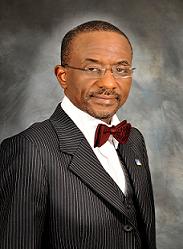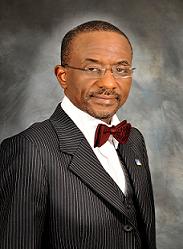On Friday 24th February 2023, the Central Bank of Nigeria (CBN) in a breezy and elliptic one-page circular provided regulatory guardrails for bank director tenures, initially suspected to equally apply to Financial Holding companies (Holdcos). The circular bootstrapped the tenures of bank Managing Directors (MDs), Deputy Managing Directors, (DMDs), Executive Directors (EDs), and Non-Executive Directors (NEDs). Like an itch that needed urgent scratching the money market regulator put a chokehold on the cumulative number of years senior bank officers could occupy executive board positions. However, like all itches scratching the irritation could cause bleeding.
In its attempt to put limits on the tenure of bank executives, the CBN circular lumped the parent or Holding companies of banks with their subsidiaries, a flawed move as local financial Holding companies engage in businesses well beyond banking note observers. Nigeria’s financial Holdcos run businesses ranging from banking and finance to trading in equities and Fixed Income assets, and investments in fintech, agritech, insuretech, Information Communication Technology (ICT), and alternative asset finance. The regulatory oversight for a few of these activities comes under the Securities and Exchange Commission (SEC), the National Communications Commission (NCC), and some Self-Regulatory Organisations (SROs) such as the Nigerian Exchange Group (NGX), FMDQ, AFEX, NASD, and the Lagos State Commodities and Futures Exchange (LCFE).
Therefore, the CBN’s attempt at regulating the tenure of bank executives and that of their financial Holdcos without the agreement of other financial market and communication regulators, according to analysts, represents a ham-fisted overreach of power and responsibility. Indeed, the CBN circular has prompted the need for a review of Nigeria’s financial system governance architecture to streamline regulatory roles and responsibilities. The CBN’s grizzly clutch at greater regulatory control of the Nigerian financial markets raises the need for protecting the system from overambitious regulatory institutions or overreaching regulatory officials.
Fine-tuning Monetary and Banking Oversight for the Future
The issues that need quick fixes include but are not limited to the following:
- Allowing bank executive officers' tenures to be determined by the bank's shareholders. Banks are private businesses similar to bakeries selling cupcakes and bread. Admittedly the relationship between the broad economy and the business of banking is different from that of pastries but both are legitimate private businesses, and both should rely on the wisdom, or otherwise, of shareholders. In the case of the banking business, the CBN should set the rules for bank operations, monitor compliance and apply sanctions where necessary. Caps on executive tenure achieve very little to improve governance quality. The CBN’s desire to see upward mobility amongst Nigeria’s banking rank and file is admirable but is not a requirement for good corporate governance. Capital One’s CEO, Richard Fairbank, has been CEO since 1995. First Republic Bank of San Francisco's, James Herbert, has spent 37 years as CEO of the lender, he has been CEO of the US$181bn asset-sized bank since the age of 40 years. In terms of financial Holdco, Investor extraordinaire, Warren Buffett, has held sway as CEO of Berkshire Hathaway for 53 years or since 1970, with his buddy Charlie Munger, serving as Vice Chairman. The problem of banking executive management in Nigeria is not the length of years of service but the quality of mind of managers. When the number of years of a bank’s CEO is inversely related to the growth of the bank’s assets and the size of its earnings, then it is time to say goodbye.
- Nigeria should create the local equivalent of the British Financial Conduct Authority (FCA) which would regulate the conduct of financial sector operators. In addition, there should be the Prudential Regulation Authority (PRA) under the supervision of the CBN. While the FCA takes a sweep over the regulation of governance in financial institutions including financial Holdcos, the PRA would address issues around prudential infractions or guidance of banks. The arrangement would enable the CBN to remain focused on its macroeconomic mandate of promoting sustained economic growth at relatively low inflation growth rates.
- Given that a growing number of banks have opted for a Holdco structure most of them have found ample room to sashay around the tenure limitation which has achieved little, if anything, in the last half-decade. The only CEO caught by the ten-year rule in recent times has been Mr. Ifie Sekibo of Heritage Bank. The notion that bankers like Mr. Herbert Wigwe former CEO of Access Bank, Mr. Segun Agbaje, former CEO of GT Bank, and Mr. Jim Ovia, former CEO of Zenith Bank would be caught by CBN’s new tenure arrangement is wrong. The gentlemen manage Holdcos of which the aforementioned banks are subsidiaries. Their executive positions at the Holdcos are not subject to the CBN tenure restrictions as Holdcos are not banks but constellations of different financial and technology-related businesses. The different lines of Holdco businesses have separate regulators, meaning that the CBN cannot unilaterally impose tenure limits on their executives. As Proshare analysts have previously noted in an earlier commentary, the answer to a throbbing headache is not the removal of the head. The problem of governance is not the length of service of executives but the nature of their character, their competence, and capacity. The CBN’s primary concern should not be that bank executives stay in office beyond ten years but that they meet the detailed requirements of their fiduciary responsibilities and satisfy the minimum requirements of competence and integrity. They must like Caeser’s wife, be above board
The new CBN rules would most likely affect EDS, NEDs, and DMDs, but why lose experienced and competent boardroom executives because of tenure considerations? The CBN’s new tenure rules may create a blistering Cobra effect where the desire for upward professional mobility destroys the retention of critical experience, thereby worsening operational effectiveness and efficiency, credit capacity and human capital dexterity in frontline banks. According to a Lagos-based bank executive who requested anonymity. ‘the new tenure rule is like setting a fire under the pants of boardroom talent. Executives with experience would want to run to other younger and smaller institutions as they aspire to rise to the top, staying for ten years under any CEO would be seen as professional stupidity, suicide or both!’.
According to the executive, ‘the new rules would never have supported a situation where erstwhile CEO of FCMB, the widely respected, Dr. Jonathan Long would have served under Otunba Subomi Balogun for several years or a situation where Mr. Ladi Balogun was groomed under the steady tutelage of Dr. Long for roughly a decade. The scramble for the number one job in banks would lead to a horde of professional cowboys. I am not sure that this is the CBN’s intention’.

It needs to be understood that the CBN Circular does not address whether the tenure limit applies to the cumulative experience of bank executives in a single bank or across banks. There is a need to understand whether the new rule reflects the individual’s total banking experience or just that part of his or her experience that pertains to his or her present employment.
Furthermore, while it is correct to acknowledge that the CBN is the licensing authority for Holdcos, the argument here is that since Holdcos manage a variety of businesses beyond the CBN’s purview, another agency the Financial Conduct Authority (FCA) should be responsible for broader financial market governance. In addition, the case for bank executives to answer to their shareholders for tenure retention should be adopted, except in case of a breach of fiduciary responsibilities where the CBN as a regulator could discipline the executive by a possible removal. In removing the executive, the bank’s shareholders should be allowed to appoint a successor. Rohini Nilekani notes that ‘we cannot be mere consumers of good governance, we must be participants; we must be co-creators.’ Bank shareholders must be made accountable for those that run their investments, including banks.
Closing Thoughts
In the broad scheme of things, Nigeria must embrace a financial system that works to protect depositors and reward investors. The system must be arranged to be market-driven rather than regulator-imposed shifting to the whims of whoever runs the regulatory jailhouse. The decision over who runs banks should be that of shareholders with the approval of the CBN, but the regulator should not decide who becomes a bank’s CEO, DMD, ED or NED. Those decisions belong to the bank’s owners. If shareholders choose the wrong people they get punished through the bank's statement of comprehensive income and the bank’s statement of financial position.
Banks should not be denied talent honed by gritty years of operating experience because dark hairs have become bleached white over time. There is a reason lawyers wear grey wigs and it has nothing to do with fashion, it symbolizes wisdom that comes by standing on the intellectual and legal shoulders of men and women of formidable reasoning. For bankers and banking, knowledge and experience are just as important.
If Nigeria’s financial system will progress along the lines of best global practices, the regulatory framework must change. The country will need to create a Financial Conduct Authority and a Prudential Regulation Authority that improves financial sector regulatory governance in collaboration with the SEC and the CBN to free them to do what they do best rather than dabble in the daily treadmill of operations and annual corporate evaluation by shareholders.
Proshare analysts expect that during the week the CBN will rework its earlier memo and clarify its position concerning the tenures of Holdco executive board members. The earlier memo was misleading and created unintended and unneeded speculation. While bank executive officers' tenures can be limited (however ill-advised), that of Holdco executives cannot.
Analysts have noted that while strong individuals have their place in regulatory oversight, strong institutions and governance practices are more durable and less whimsical.
 Lagos, NG • GMT +1
Lagos, NG • GMT +1











 1418 views
1418 views























 Sponsored Ad
Sponsored Ad
 Advertise with Us
Advertise with Us









